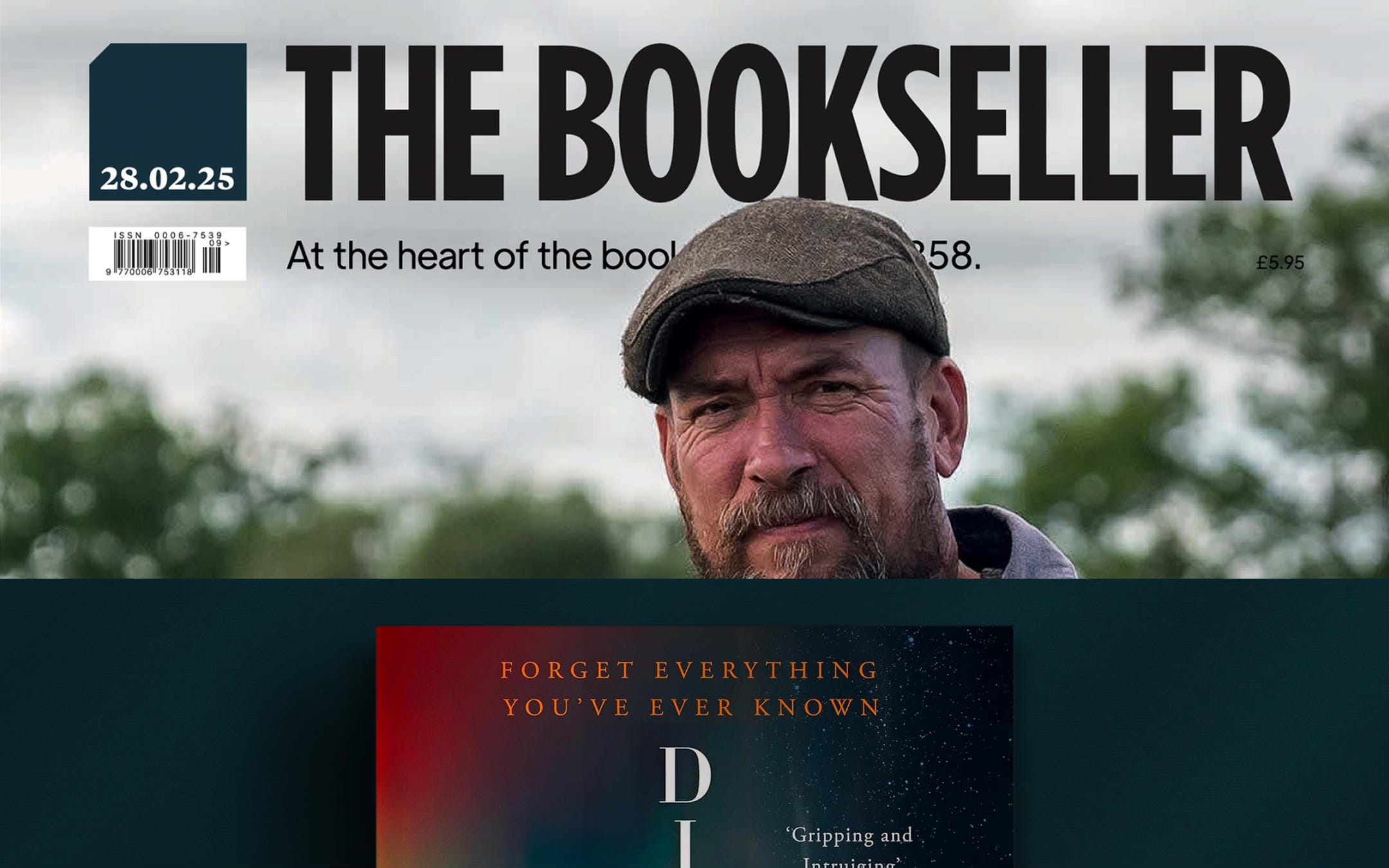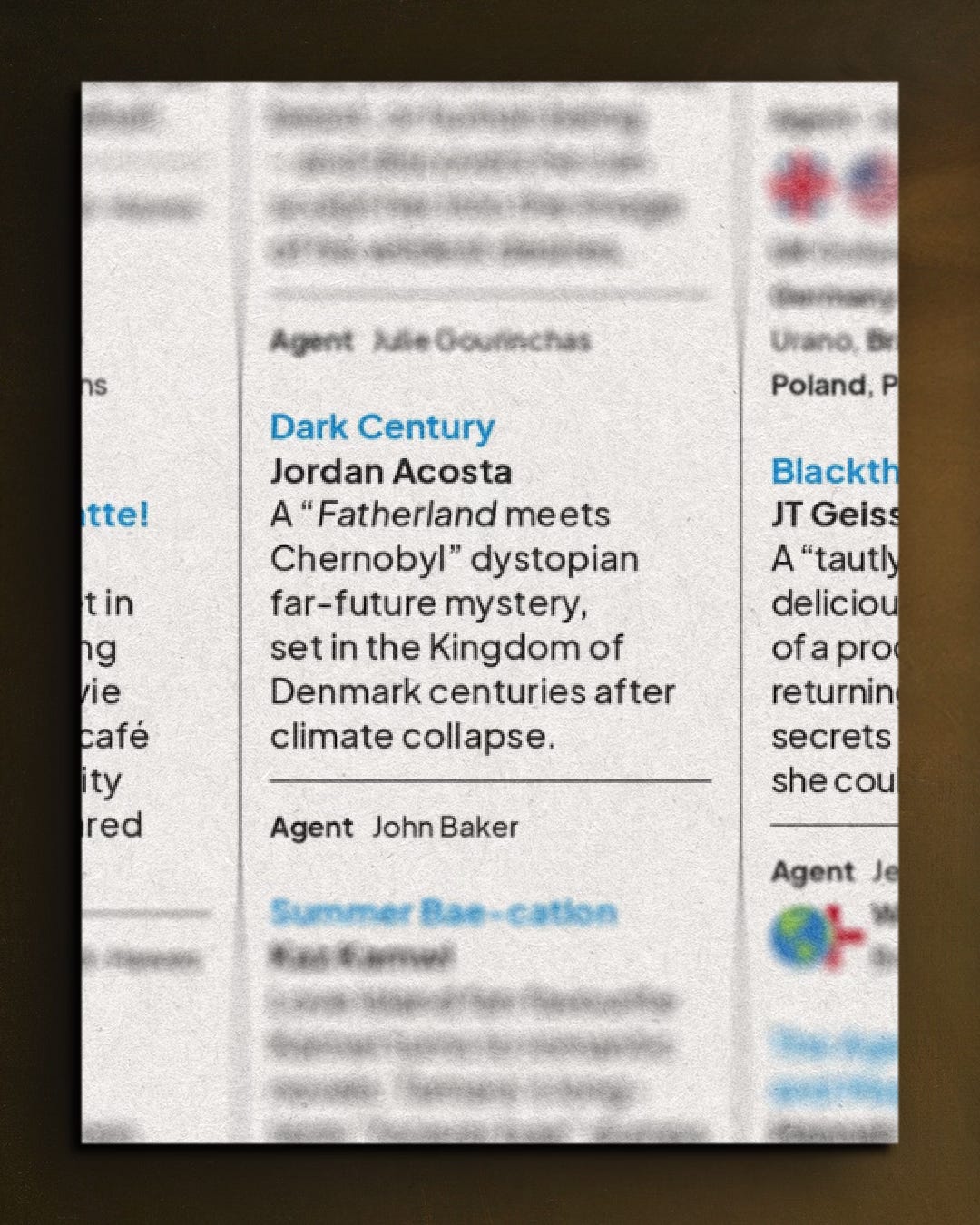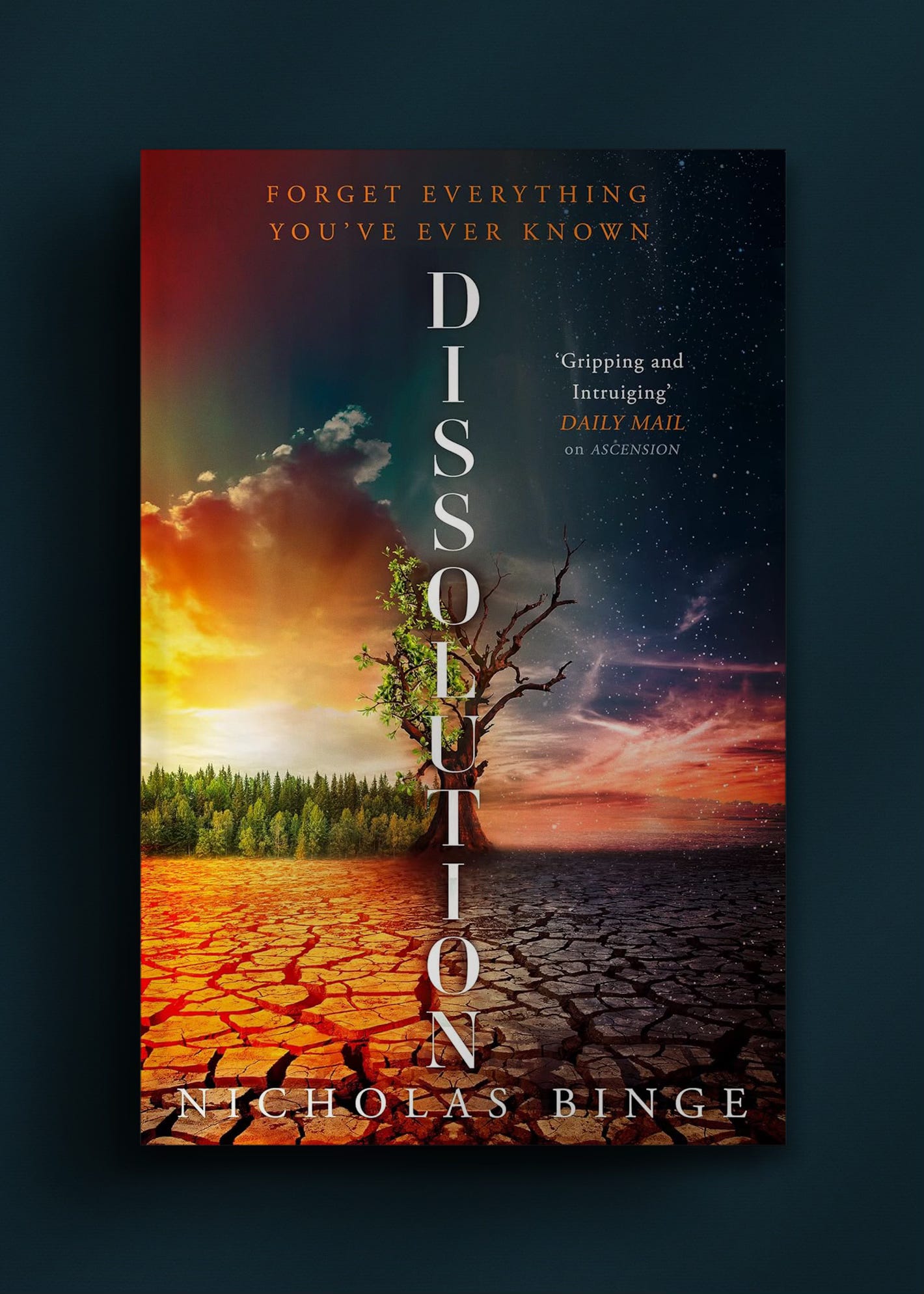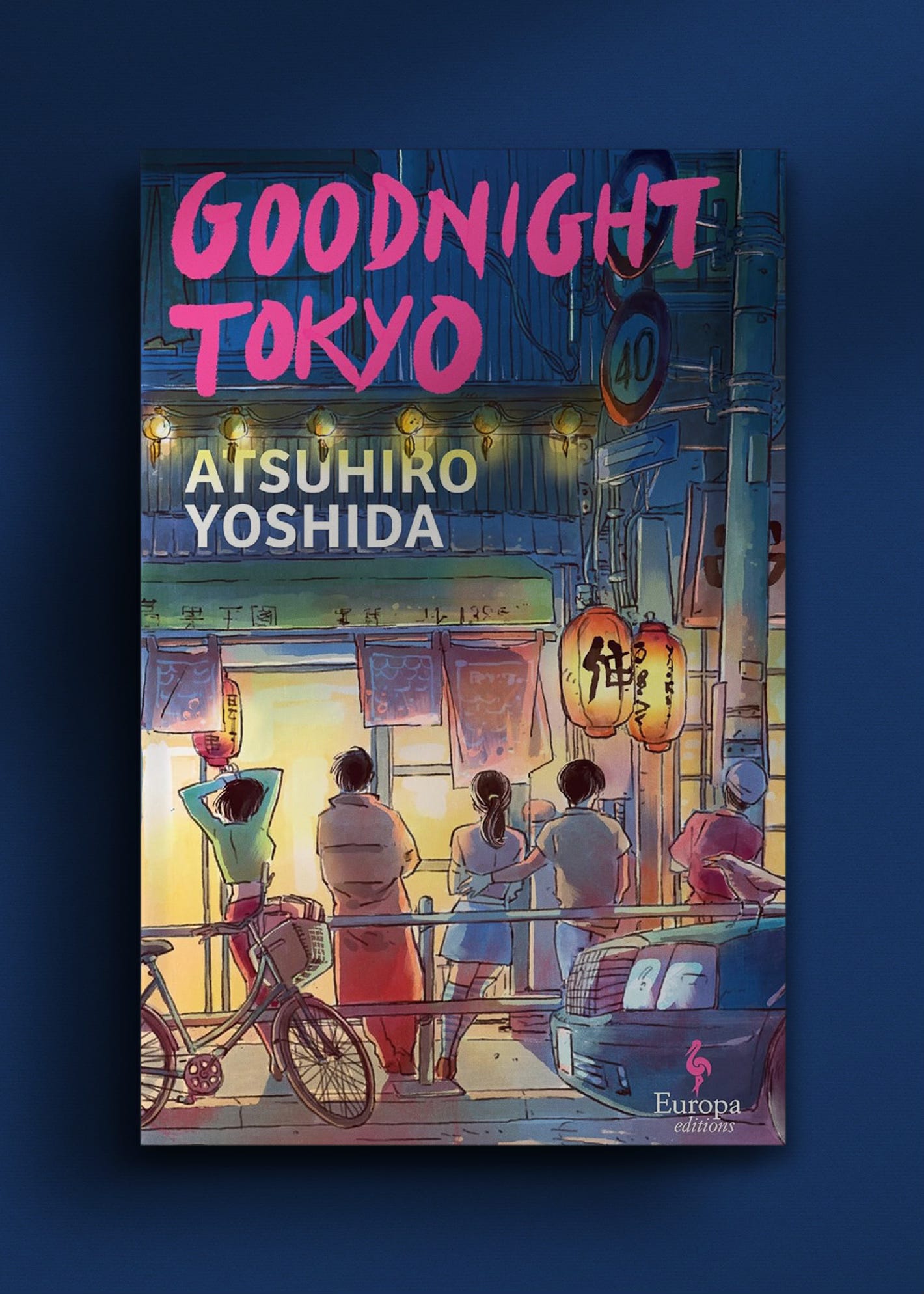The Dispatch #4 – On the London Book Fair & Editing
March 2025's monthly update from Jordan Acosta, a British speculative fiction writer.
About Me
I'm a British 40-something speculative fiction writer, professional designer and creative director based near London. Over the last five years, I’ve worked on drafting my debut novel, Dark Century. The Dispatch is my monthly newsletter, published on the first Thursday of the month.
Format
Topics are broken down into:
CABLE – News & Events;
MINUTES – On Writing & Publishing;
VETTING – The Month's Reviews;
POSTINGS – Elsewhere, On/Off-line;
INTERCEPT – Quote of the Month
CABLE –
News & Events
It’s been a hectic month, but one that’s been very rewarding. In short:
New Website
I’ve been consolidating and reorganising my author website, jordanacosta.co onto Substack. I don’t have the brainpower or inclination to maintain an online presence on multiple platforms because I’d just rather be writing books, but I’ll be investing more and more time on Substack.
Don’t worry, the Dispatch remains a monthly addition to your inbox published every first Thursday, but with a minor amendment. ‘What now?’ I hear you ask.
I’m making one small tweak to the format, namely linking – rather than embedding – longer pieces in the Dispatch from now on, in order to take advantage of Substack’s architecture.
My website now has some additional links on the navigation bar: Dark Century, Reviews and Commonplace; somewhere to put longer essays, unconstrained by email length, as well as being able to be amended/corrected/expanded. These long-form articles also need to be easily found in the months and years to come, rather than being buried in a past edition of the Dispatch.
For your convenience, short reviews will still be embedded first in the email, though I do urge you to have a look at my growing reviews archive when you have the opportunity.
Indentures
In other news, I acquired a genuine indenture dated from 1674 at an antiques fair in Hertfordshire.
I love the fact that UK has so much recorded history that you can randomly pick up. My plan is to scan it then try and decipher the thing in its entirety. Hopefully I’ll have a complete transcript to share with you in a future edition of the Dispatch.
Agents’ Hotlist
I’m very fortunate to have been included in the February 28th edition of The Bookseller, which is the UK’s trade magazine for publishing. More on this below.
MINUTES –
On Writing & Publishing
As of this edition of the Dispatch, the industry at large is gearing up for the 2025 London Book Fair, happening in the second week of March. The LBF is a big industry events where everyone from agents to commissioning editors and sales people get together to hash out deals for foreign territories and acquire new talent.
Probably.
It transpires my literary agent, John Baker, made Dark Century his pick for the Agents’ Hotlist for this edition of the Bookseller1.
It’s quite surreal seeing something you’ve spent so long on appear in a trade magazine. Who knows? The listing may generate a little interest in the book from editors.
It will come as no surprise, then, that I’m working through John’s editorial notes, as well as processing additional feedback from early readers. I’ll be no doubt delving deeper into this at a later date, but in short, their collective feedback has been invaluable – never trust an author who hasn’t solicited *any* feedback on their manuscript.
As of writing, the difference between draft #4 and #4.1 is big enough to be submitted as draft #5.
That’s right: I’m going out on editor submission with a fifth draft. At this point, the story is more or less locked in. It may yet change, but the overall plot has a definitive shape. These particular editorial notes are more about creating more significance to certain scenes or interactions, as well as clarifications on certain narrative threads because Dark Century has an unashamedly complex plot. There’s also some character bits I’m keen to refine. I’ll be the first to hold my hand up and concede that characterisation is my weakest areas; and one I hope to get right with enough time to revise the manuscript, taking on board feedback from early readers.
More to come.
VETTING –
The Month's Reviews
Between edits and beta reading2 for a friend, I’ve not managed to read as many books as I’d hoped, but I highly recommend the following:
Book Review:
Dissolution by Nicholas Binge
Harper Voyager, 2025
“Not many white folk come looking for the before-past,” Simon said as they trod across the crusty ground. “Not many whitefellas interested in the deep time.”
“The before-past? The deep time?”
“Whitefellas like you use the word dreamtime — but it’s a reductive term. Covers everything from the Altjira of the Arrende people to the Jukurrpa of the Warlpiri, as if they’re all the same thing. For me, I’m talking about the time before time. And the time after time. Thinking on a deep scale.”
Stanley frowned. “What do you mean?”
“Deep time is the time that is far longer than any single human life, far longer than any single human civilization,” Simon replied. He didn’t stop or turn. He spoke the words ahead of him, out to the horizon. “It’s impossible for you to understand. Your culture is based around shallow time. You see? Everything you do, everything you set out to achieve, it’s based around a single lifetime. A few years. Even those who plan for future generations only think about fifty, maybe a hundred, years into the future. That’s shallow time. Deep time humbles the human moment. What do the tens of thousands of years care for your plans?”
Dissolution marks Binge’s second outing with Harper Voyager, after 2023’s Ascension was published to commercial acclaim (and a shout out from Stephen King). Shifting gears from the peaks of a mountain to the malleable depths of the mind, Binge has hit upon a winning formula combining unlikely protagonists with thought-bending concepts to create the sort of cerebral thrillers which effortlessly lend themselves to future screen adaptions.
Case in point, Dissolution’s hero is Maggie Webb, a pensioner with mobility issues tasked with... delving into her insensible husband’s memories.
What follows is a generational saga flitting between the 1950s and the present: from the draughty halls of an English boarding school to the scorching deserts of the Australian Outback; where mind, science and time converge towards a cosmic horror which would make HP Lovecraft proud.
Inevitable comparisons to Nolan, Blake Crouch or Michael Crichton will no doubt surface in time, but I’d place Dissolution up there with the works of Japanese horror maestro Koji Suzuki, who wrote Ring (yes, that Ring which spawned the mega horror franchise). In particular, Suzuki’s latest English translation, Edge, would make a great pairing if disconcerting, unstoppable dread is your thing. Wonderful stuff.
Book Review:
Goodnight Tokyo by Atsuhiro Yoshida
Europa Editions, 2024
"You like looking back over the past?" Mitsuki asked.
"Hmm." Maeda paused for a moment to ponder. "I suppose I do," he answered with a nod.
"Does that mean you're not enjoying your current job?"
"No, it's not like that. The warehouse is comfortable enough. Szoo. You've got everything here. Makes you feel like you re standing guard over the whole world's treasures, you know?" He trailed off, pulling a thin smile. "It's just — how should I put this? — I like people. Mixing drinks in some little corner of Tokyo, you get to meet all sorts of folks. Szoo. Night after night, you get to talk to them. All strangers, mind you. It was fun, really … Yep, those were the good old days."
Mitsuki's next words poured out before she had a chance to think. "In that case, why don't you do it again?"
"What?"
"Bartending."
The prop procurer; the call centre worker; the maybe-detective; passengers linked by Matsui, an amiable taxi driver who plies his trade through the early hours in one of the world’s largest cities.
Goodnight Tokyo never outstays its welcome - a novella-sized palate cleanser where not a lot happens, and yet debut author Atsuhiro Yoshida manages to convey the depths of yearning and unrequited love in the implausibly intersecting lives of (extra)ordinary Tokyo residents.
As an English-language reader with a life-long interest in Japan and its people, Goodnight Tokyo is a fascinating peek. Highly recommended if you want more ‘slice of life’ short stories in your reading. If you’re like me, you’ll blast through it in one or two sittings.
Translated into English by Haydn Trowell.
Series Review:
Severance, Series 1, 2022 -
Director: Ben Stiller, Aoife McArdle et al.
Helly R.: Well, boss. I guess this is the part where I should tell you to go to hell. Except you're already here.
I’ve been recommended Severance by just about everyone, and like so many things, it misses me by for years until I finally hop on the bandwagon. Apple TV has a great reputation for science fiction stories like Silo and Foundation, but Severance is just so weird, it becomes compulsory viewing.
The premise, the cast and the plot are (unsurprisingly, for Apple) pitch perfect; but for me, it’s the extraordinary production design that stands head and shoulders above anything else I’ve seen in a long time. The graphical user interfaces; the almost-identical corridors; the vending machines; user manuals – even the artwork wheeled around by Lumon’s Optics and Design department provide me with a profound sense of aesthetic joy.
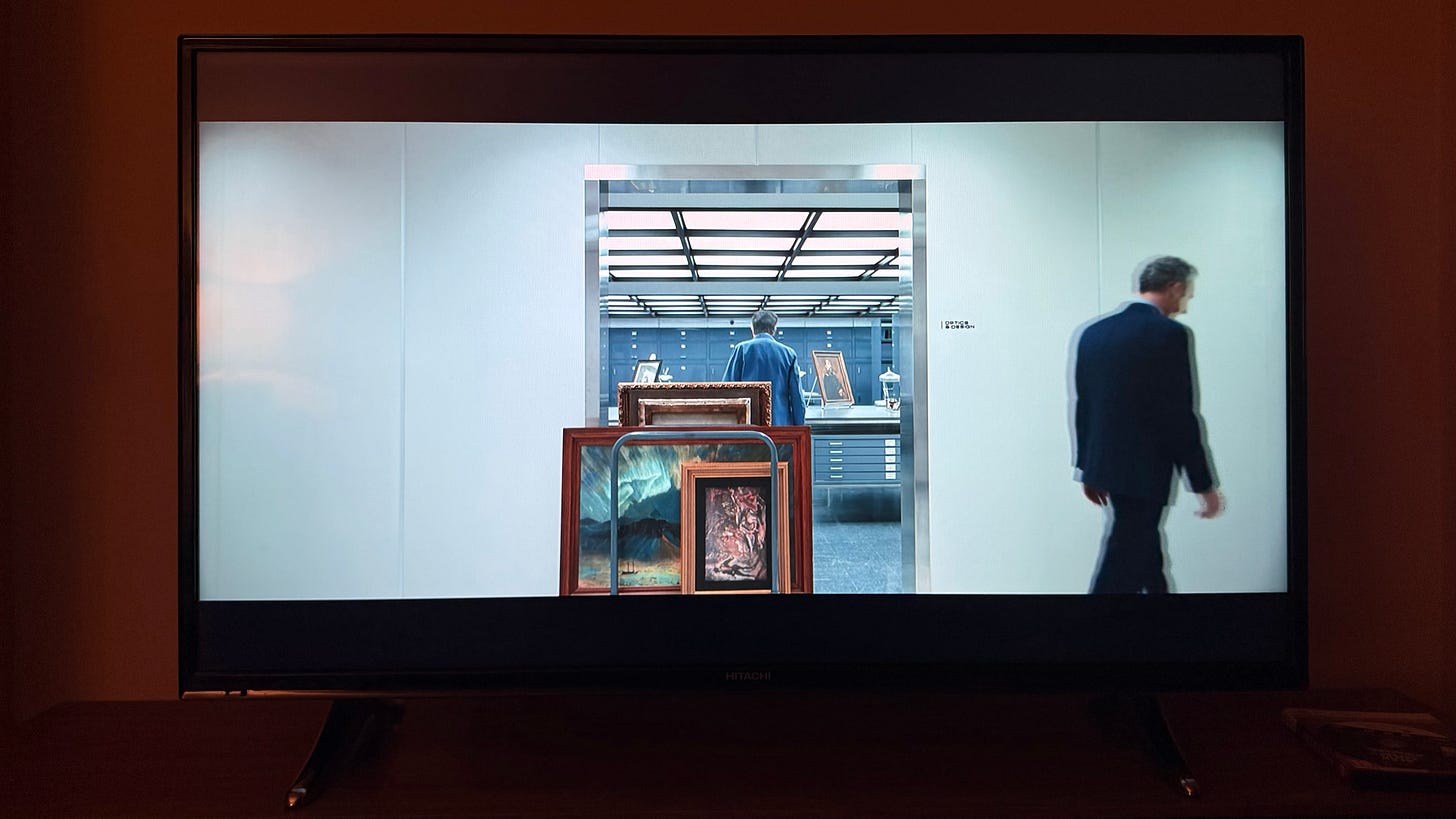
The series cliffhanger is such an extraordinary climax to a brilliant series, it serves as a timely reminder that real story telling magic resides in our imaginations: the imagined answers to questions that we don’t really need the answers to, like, what does Macro Data Refinement actually do? Or is Severed Floor a modern allegory of purgatory in late-stage capitalism?
I don’t know, and don’t want to know. I hope Series 2 makes no attempt to explain it.
Film Review:
The Monkey, 2025
Director: Osgood Perkins
Lois: Everybody dies. Some of us peacefully and in our sleep, and some of us... horribly. And that's life.
I’ve come to a place with horror films where I’ve seen enough of them to make a judgement call early on if I’m going to enjoy it or not. Films like the 1998 Japanese film adaption of Ring spring to mind as the pinnacle of masterfully crafted terror. On the other end of the spectrum are generic jump-scare riddled movies found in an endless carousel of the streaming service of your choice. Then there’s a third category where everything is absurd and doesn’t take itself too seriously. The Monkey is one of these films, and the premise of an organ grinder monkey toy as the harbinger of doom sounds exactly like something Stephen King would write.
Theo James and Christian Convery do a fantastic double act of playing the old and young versions of identical twins Hal and Bill, with a hilariously unhinged cameo from Elijah Wood; but my favourite performance goes to Tess Degenstein as Barbara, a wonderfully chirpy and intense estate agent who can’t help but peek into locked wardrobes to her detriment.
Anyway, it turns out The Monkey is an adaption of a Stephen King short story.
You can find the full archive of all my short reviews, here.
POSTINGS –
Elsewhere, On/Off-line
The irony is that the technology designed to give us endless access to information has simultaneously deprived us of the one thing we most need to truly engage with that information: time. And so, the solution is almost absurdly simple: slow down. To read with intention. To read not just to extract facts or glean insights but to engage deeply with the text, to allow it to affect us, to challenge us, and to push us into deeper thought. This is reading that demands patience, that resists the call of instant gratification. It is reading that invites us to immerse ourselves in the language of the text, not just to glance at it.
– Michael S. Rose, The Subversive Art of Slow Reading
My literary stock had risen significantly, but we still went into edit calls for Hot Wax braced to hear a lot of what we heard: Can it be more of a mystery? More romantic? Less icky, less edgy, less difficult? In so many words, can it be more like If We Were Villains? I kept saying no, and I kept hearing no. I was starting to get a little demoralized and starting to think I’d committed professional suicide when we finally had the call. The right call. The call that made me think, “This is the person I want talking about this book when I’m not in the room.” The man who’s now my editor at S&S understood instantly what the book was about, wanted to take it and make it sing and make it rock and make it scream, and didn’t see its deviation from my debut as a defect.
– M.L. Rio, Who’s Talking About You When You’re Not in the Room?
He’s incredibly well presented, he talks constantly with confidence, humour and tact. He’s researched, informed and subtle. In all honesty - if he wasn’t so good at his work I WOULD HATE HIM. I can’t be the only one, I’m quite sure he has a huge number of admirers, his clients fawn over him when they make appearances and he has even earned the honour of being the subject of online parody videos. He’s making an absolute mint - and frankly… good for him.
– Richard de Pesando, Bloomfield V Baumgartner
NB: Richard and I have been friends for a long time, and he’s an extraordinary designer who has designed some of the most iconic logos in British retailing. We had a little catch up a while ago and I was surprised to find out he watches the exact same painting restoration videos as I do. You have to check out Julian Baumgartner’s YouTube channel.
INTERCEPT –
Quote of the Month
“Imagine a sprawling factory block of no merit, the kind of building you see in dozens on the western by-pass, usually with a symbol of its product set out on the roof; paint about it a sullen Rhenish sky, add an indefinable hint of Nazi architecture, just a breath, no more, and erect in the rough ground behind it two fading goalposts for the recreation of the unwashed, and you have portrayed with fair accuracy the mind and force of England in the Federal Republic. With one sprawling limb it holds down the past, with another it smoothes the present; while a third searches anxiously in the wet Rhenish earth to find what is buried for the future. Built as the Occupation drew to its premature end, it catches precisely that mood of graceless renunciation; a stone face turned towards a former foe, a grey smile offered to the present ally.”
– John le Carré, A Small Town in Germany (Penguin Modern Classics, 2011)
Many thanks for reading. The Dispatch is a monthly roundup by British speculative fiction writer, Jordan Acosta. News, short reviews and more, published every first Thursday. You can subscribe at jordanacosta.co, and read previous editions, here.
If you no longer wish to receive emails from me, there’s an unsubscribe link at the bottom of this email.
Also in this issue are fellow ESFF writing pals Nicholas Binge, Sarah Brooks, Gareth Brown and Shauna Lawless, whose books you should buy and read as soon as possible. In fact, you should also check out the Edinburgh SFF writing group in general. And no, I’m not Scottish nor live anywhere near Edinburgh
Many authors send out a reasonably polished version of an unpublished manuscript out to a small group of readers to solicit feedback. This can be an informal arrangement, or could involve things like questionnaires to help organise feedback from multiple early readers


